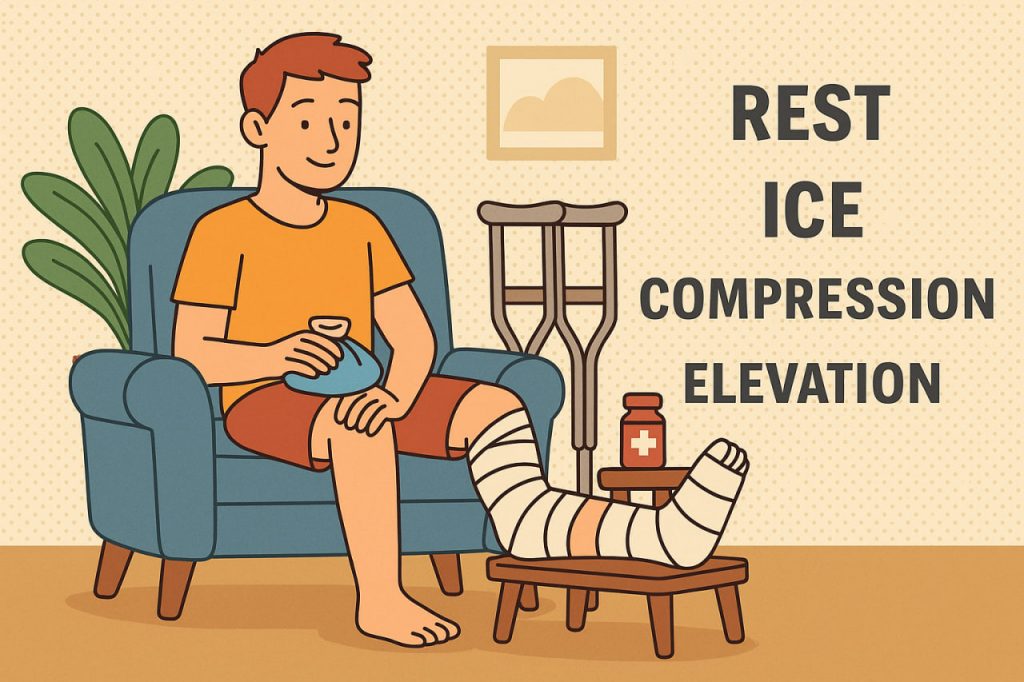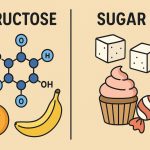Recovery after an injury is a critical stage that helps the body heal properly and prevents long-term complications. Whether it is a sprain, fracture, or muscle strain, the recovery process requires time and care. Healing involves both physical repair and gradual restoration of mobility, strength, and confidence. Ignoring recovery may lead to repeated injuries or chronic pain. Modern science emphasizes that recovery is not only about the injured area but also about overall well-being and balance in daily activities.
Immediate Steps After Injury
Right after an injury, specialists recommend following the RICE method: Rest, Ice, Compression, and Elevation. Resting the injured part reduces strain, while ice minimizes swelling and pain. Compression with bandages helps stabilize the area, and elevation decreases fluid buildup. These measures should be applied carefully to avoid complications. If the injury is serious, professional medical attention is necessary. Self-treatment beyond basic first aid is not advisable, as it may cause delayed healing or worsen the damage.
Role of Medical Supervision
Professional evaluation is essential for effective recovery. Doctors or physiotherapists may use imaging tests such as X-rays or MRI scans to assess the injury. They create individualized recovery plans, which can include rest, medication, and controlled exercises. In some cases, rehabilitation programs are designed to gradually restore mobility. Following medical guidance ensures that recovery is safe and efficient. Consulting a specialist also prevents the risk of overlooking hidden injuries that might cause long-term health issues.
Physical Rehabilitation
Rehabilitation plays a central role in recovery. Controlled physical therapy helps rebuild strength, improve flexibility, and restore balance. Exercises are introduced progressively, starting with gentle movements and gradually increasing intensity. Techniques like massage, stretching, and low-impact training may also support healing. Rehabilitation should be adapted to each person’s condition, ensuring that the injured area regains its normal function without unnecessary stress. This stage may take weeks or months, depending on the severity of the trauma.
Psychological Aspects of Recovery
Recovery is not only physical but also psychological. Many people experience frustration, anxiety, or even depression during the healing period. Lack of activity and reduced independence can affect mood and motivation. Mental support, encouragement from family, and positive coping strategies play an important role. In some cases, counseling or stress management techniques may be recommended. A healthy mindset helps maintain motivation and speeds up the overall healing process.
Lifestyle During Recovery
Healthy lifestyle habits accelerate recovery. Proper nutrition provides proteins, vitamins, and minerals essential for tissue repair. Adequate hydration supports circulation and healing, while quality sleep gives the body time to regenerate. Avoiding alcohol and smoking is important, as they slow down healing. Gentle daily activity, when approved by specialists, prevents stiffness and improves circulation. Balancing rest and controlled movement ensures that recovery progresses smoothly.
Conclusion
Recovery after an injury is a gradual process that involves immediate care, medical supervision, physical rehabilitation, psychological support, and healthy lifestyle habits. Each step is important for full healing and prevention of future complications. While recovery may take time, patience and professional guidance ensure the best outcomes. By respecting the body’s limits and following expert recommendations, people can regain strength, mobility, and confidence after an injury.
Glossary
- Injury – damage to body tissues caused by accidents, impact, or strain.
- RICE method – Rest, Ice, Compression, Elevation; a first aid approach for injuries.
- Rehabilitation – structured recovery process including physical therapy and exercises.
- Physical therapy – guided exercises and treatments to restore movement and strength.
- Nutrition – food intake necessary for growth, energy, and tissue repair.
- Hydration – maintaining fluid balance in the body for proper functioning.


